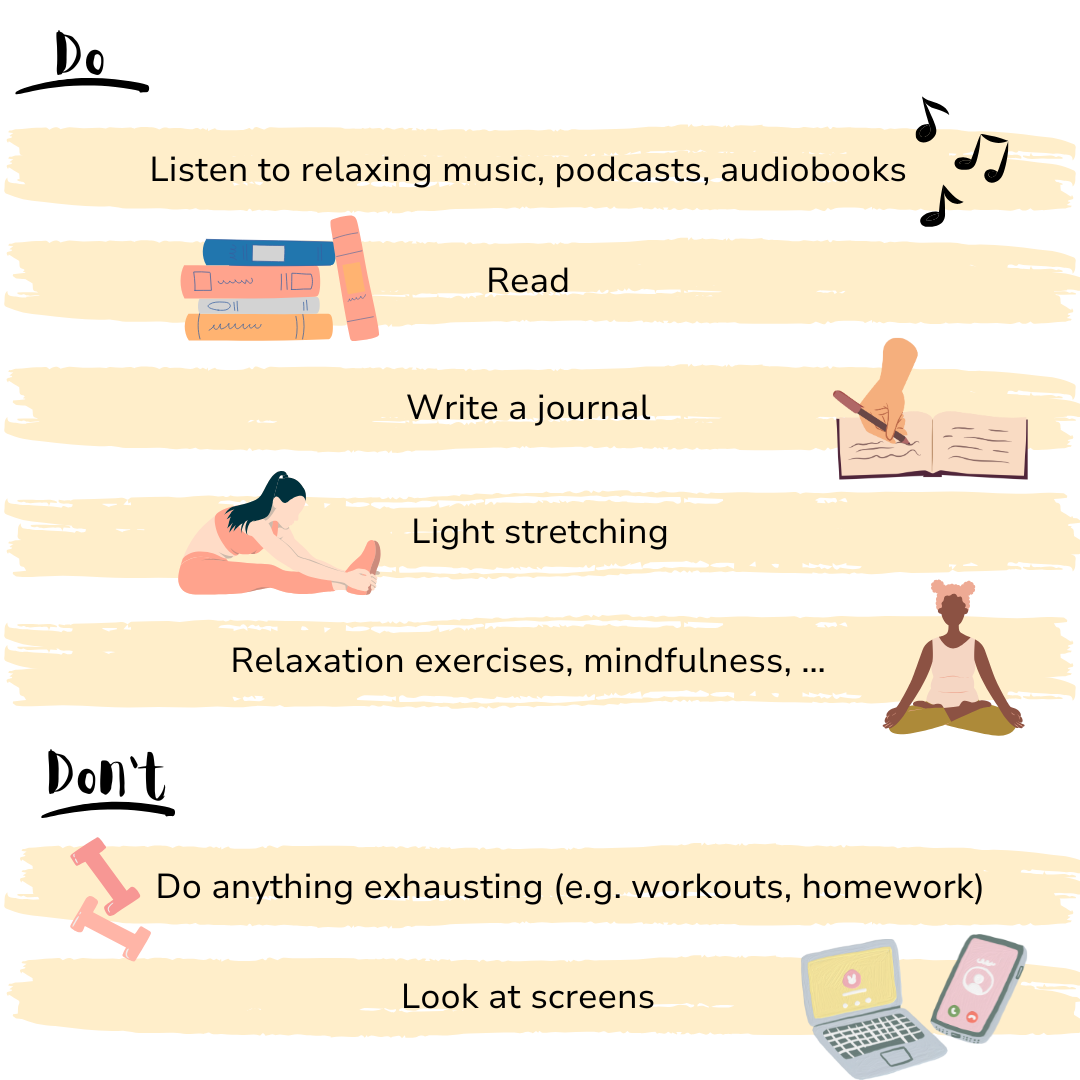Sleep well!

- What is healthy sleep
- How much sleep you need
- Why we have to sleep at all
- Tips for your sleep hygiene
You want to learn how to deal with stress?
What’s healthy sleep?
In short, your sleep is healthy when you wake up feeling rested and refreshed.
Falling asleep easily and sleeping through the night are signs of good sleep quality. If you’re often feeling tired or unfocused, this can be a signal to adjust your sleep habits.
If you’re having trouble falling asleep, lie awake at night or wake up early, this does not necessarily mean something is wrong. Try to make small changes first (e.g. follow the recommendations given here). However, if this happens regularly and starts to seriously affect you, it is best to talk to a professional (doctor).
How much sleep do you need?
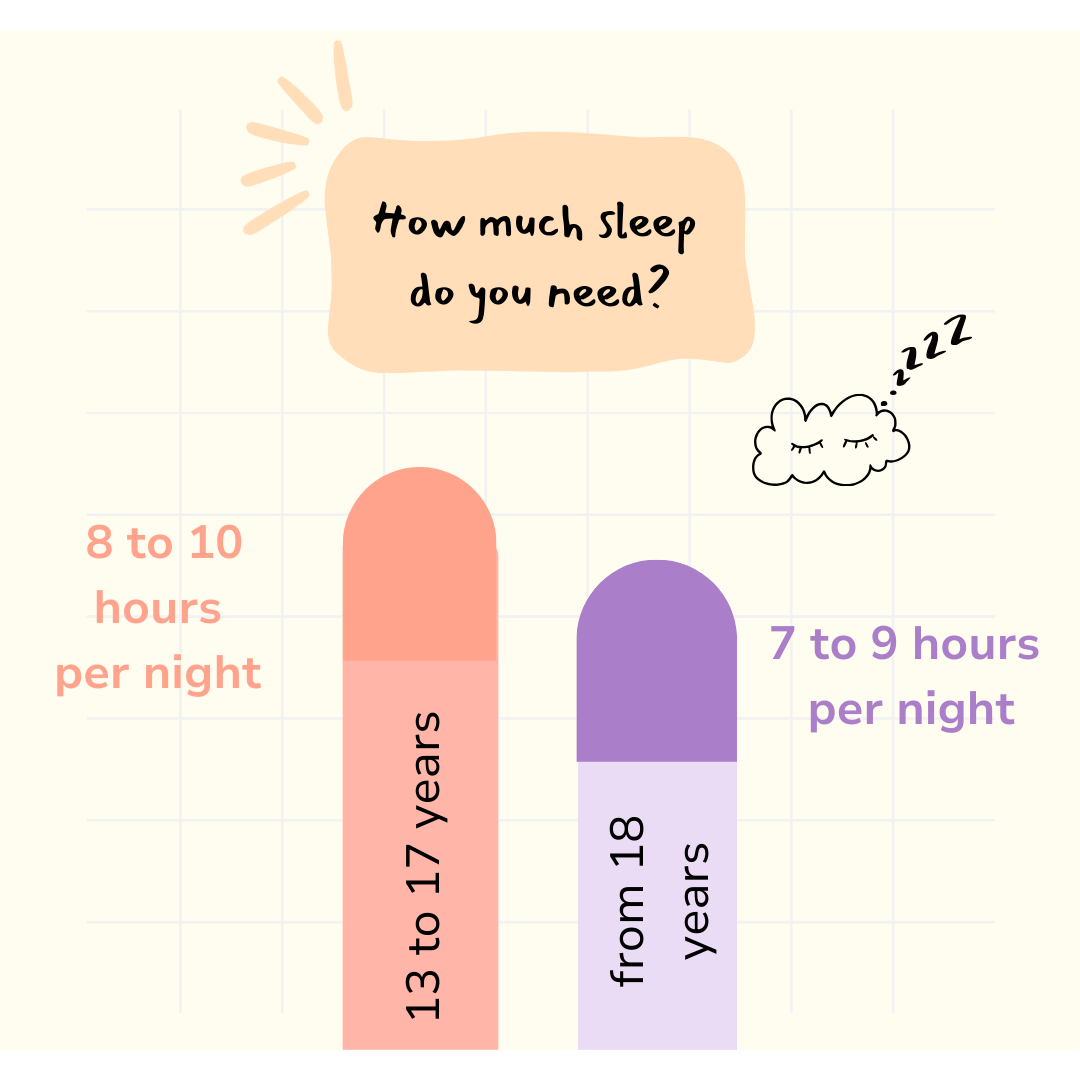
The ideal amount of sleep varies per person but typically ranges from 5 to 10 hours per night. If you’re getting less than 8 hours on a typical weeknight or weekend, you might not be sleeping enough, which can impact your energy levels and focus during the day.
On the other hand, sleeping 11 to 12 hours might be more than you need, or it could indicate you’re catching up on missed sleep.
The amount of sleep you need changes over a lifespan. There is research showing that on average adolescents need more sleep than kids or adults.
Also, in addition the perfect sleep time can vary from person to person: Some people are “early birds”, others become active as the day progresses. If your natural rhythm doesn’t go along well with the average rhythm of society it can cause stress and you should pay extra attention to get enough good sleep.
Why do we have to sleep at all?
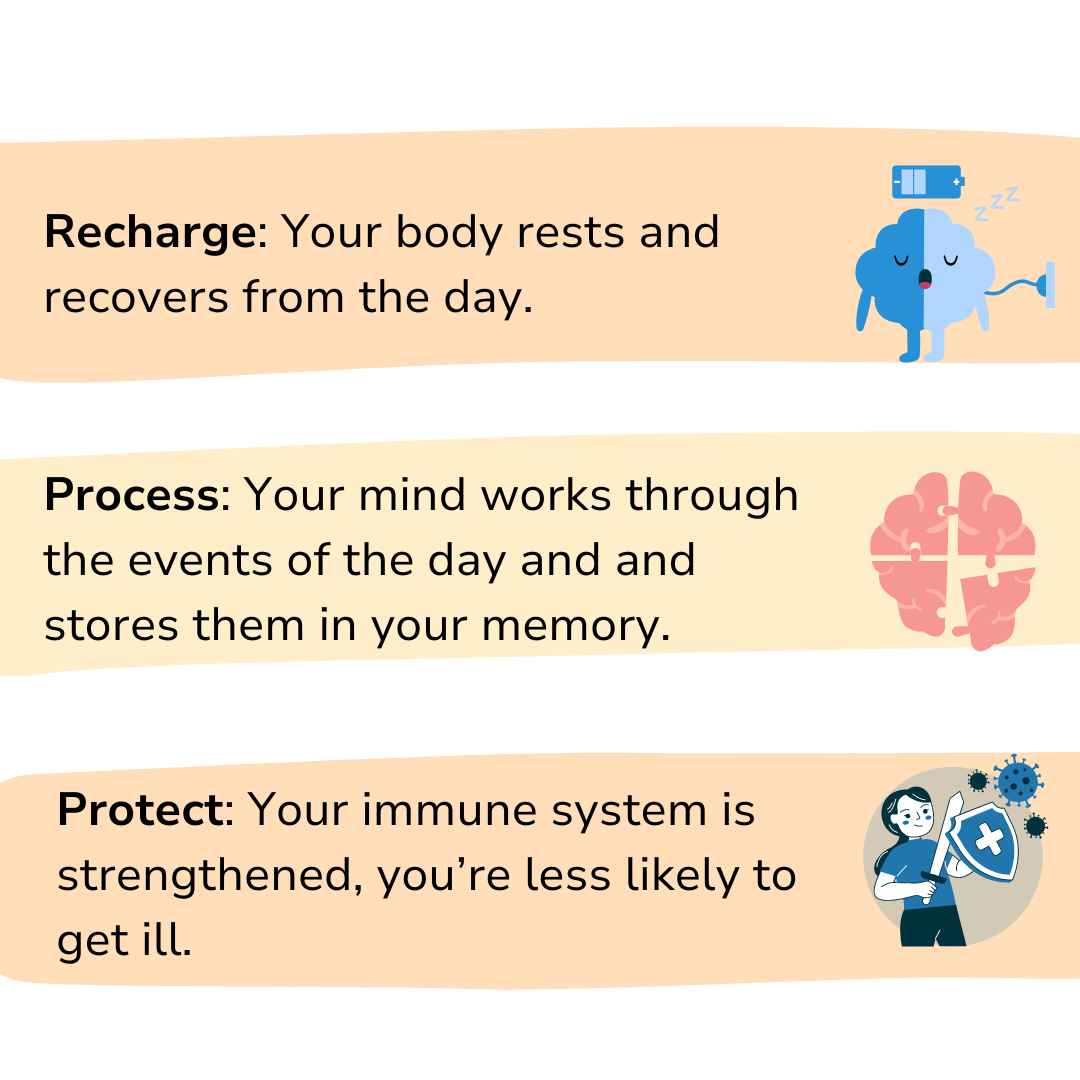
Is it possible to “catch up” on missed sleep?
Yes, that’s possible! But a quick nap is not enough, you’ll need a long, good night’s sleep for that.
Tips for your sleep hygiene
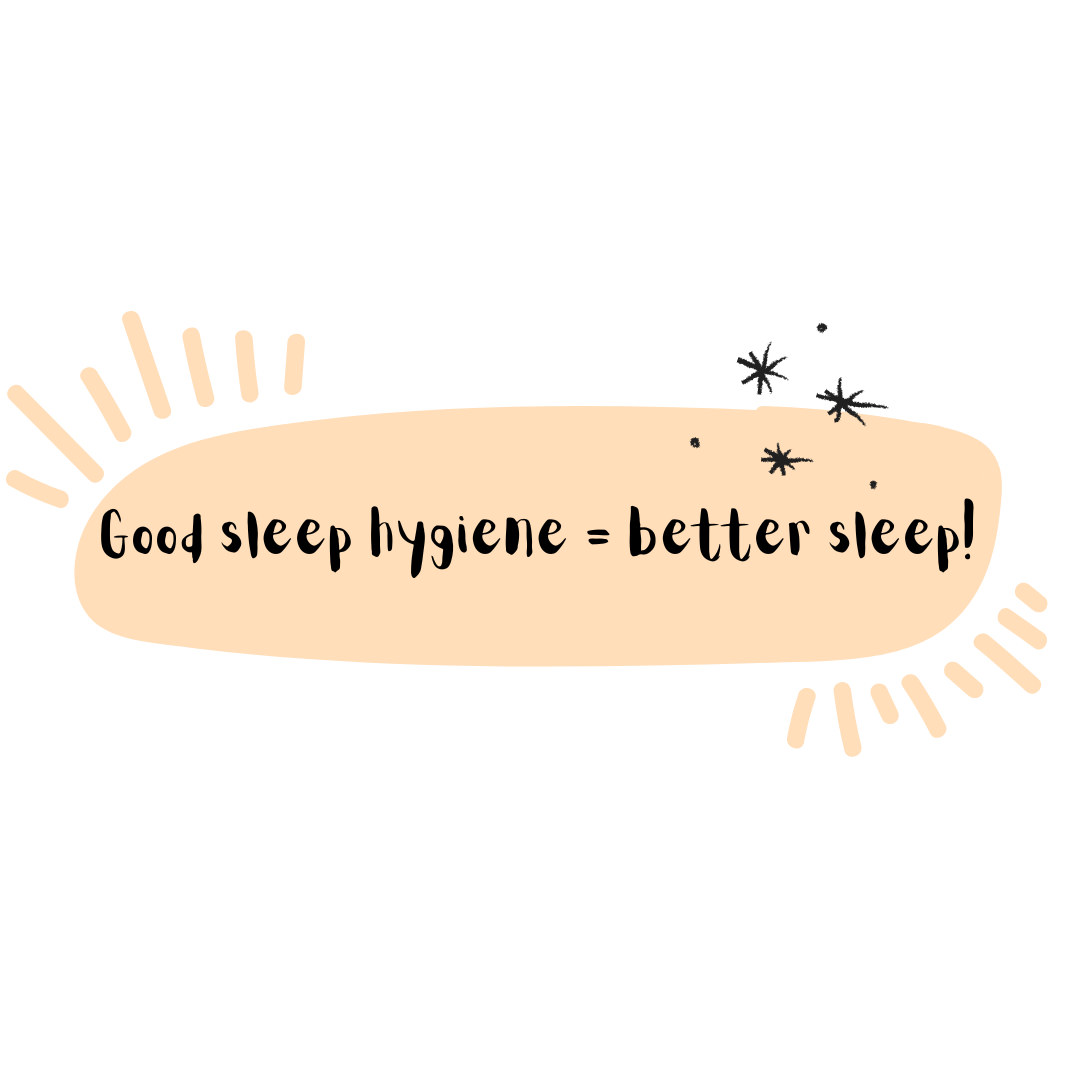
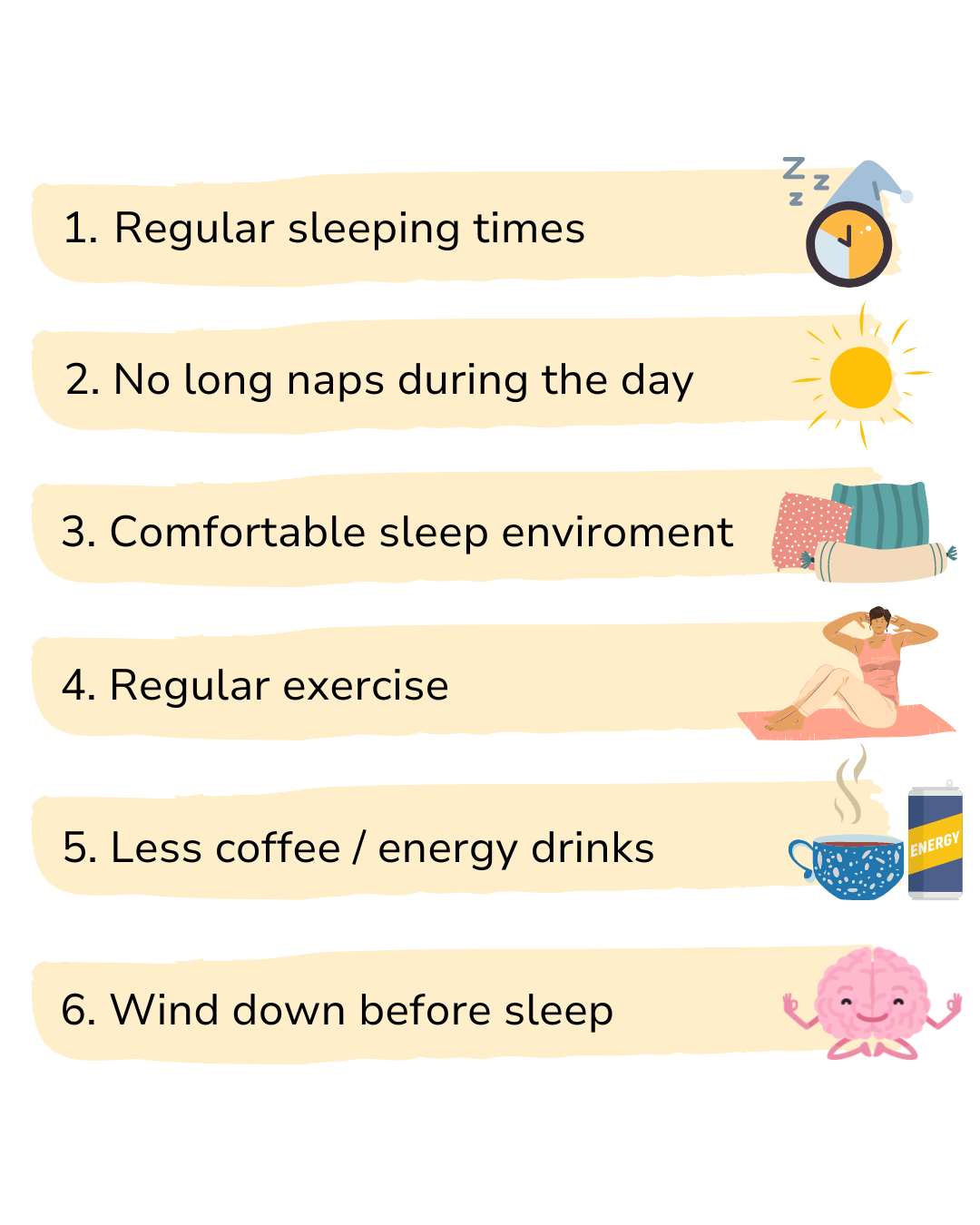
How do you wind down before sleep?
